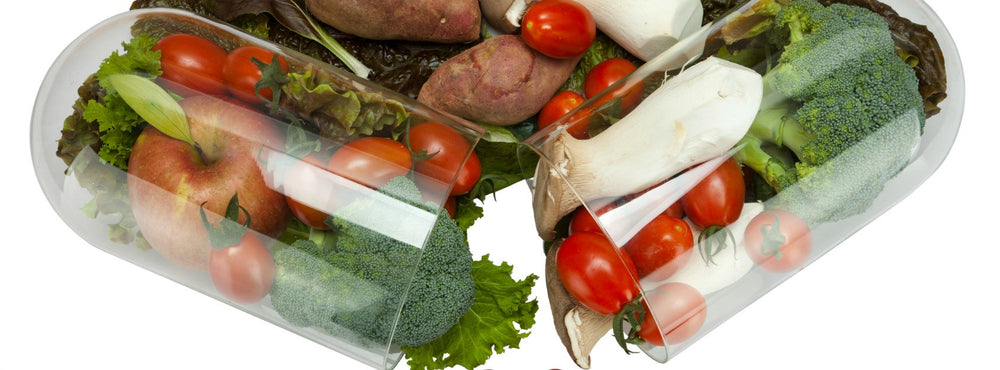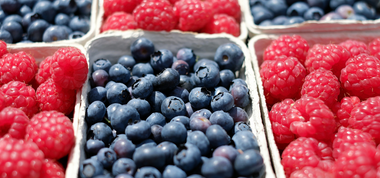Alternatives to statin medications

Approximately 20% of people who require treatment for high cholesterol cannot tolerate statin medications because they develop side effects. And it turns out that 30%-40% of people who get a prescription never fill it.
Clearly there are lots of people looking for alternatives to improve their cholesterol numbers.
There are many ways to get to a better cholesterol level, and the good news is risk reduction is the same whether you get there through drugs or food. Here are some options:
1. Step One Foods
This is why these products were created. We combined precise amounts of critical nutrients from whole food ingredients — all of which have been shown to lower cholesterol — into a convenient and minimally disruptive eating system. Just eat our foods twice per day in exchange for something you were eating before.
The big bonus of using Step One is that when you eat these foods, you are not just helping to lower your cholesterol levels. You are also helping lower blood pressure, improve blood sugar levels and decrease calorie intake which means you might lose some weight. So you are impacting several risk factors for heart disease all at once.
The data on the power of food to lower cholesterol, improve cardiovascular health and lower rates of heart attack and stroke is vast and consistent. In fact, improving lifestyle and especially food intake, is more impactful in affecting outcomes than any drug or procedure.
You can check how Step One Foods are working for your cholesterol. Get a baseline cholesterol test prior to starting your program. Eat Step One Foods twice per day for at least 30 days and go back for a repeat fasting cholesterol test. It is important to make sure you are eating the foods twice per day right up until the night before the blood test.
Not everyone who changes their diet will see a change in their cholesterol – just like not everyone who reduces salt in their diet will see a drop in blood pressure. But profound changes are possible. To date, in our customers with high LDL who are not taking statin medications, the average self-reported LDL drop has been 39 points. Some individuals have reported LDL reductions as high as 70-80 points – after just 30 days of using Step One Foods.
2. Fiber and plant sterol supplements
To see a cholesterol benefit, you should add at least 10 grams of fiber and 2 grams of plant sterols to your diet, ideally spread out throughout the day. You should take these supplements with your meals so that you obtain the most benefit.
Fiber and plant sterol supplementation has been shown to help improve cholesterol levels. However, the data for improved outcomes is strongest when higher fiber intakes come from whole foods rather than from supplements. Remember that Step One Foods provides at least 10 grams of whole food fiber and 2 grams of plant sterols in just 2 servings per day.
By the way, there is no evidence that taking CoQ 10, cayenne, or garlic supplements lowers LDL cholesterol.
3. Niacin
Niacin, a B vitamin lowers LDL cholesterol when taken in high doses. Niacin can also raise HDL and lower triglycerides, making this is a reasonable option for people who have exhausted all dietary options.
But be aware, even though it's "just a vitamin", in the doses required to lower cholesterol, niacin can cause some uncomfortable side effects.
The recommended daily allowance for niacin is about 20 mg. The amount of niacin needed to meaningfully lower LDL cholesterol can be as high as 2000 mg per day. When you take niacin at these doses, you can develop flushing, itching, digestive issues, liver enzyme abnormalities and muscle side effects. That means you need to be monitored as closely as if you are on statin medications.
More critically, niacin can worsen blood sugar control, so diabetics should be especially careful about using niacin for cholesterol.
An important note: the form of niacin that is active for cholesterol lowering is nicotinic acid. Nicotinamide, another form of niacin, has no effects on cholesterol.
4. Ezetimibe
Ezetimibe, also known as Zetia®, is a medication that can be added to statins to boost their effects. So, strictly speaking, it’s not really a statin substitute but it can help lower your statin dose and this is important because statin side effects are more likely with higher statin doses.
Remember, Step One Foods can also help lower your statin dose. That’s because specific foods have profoundly positive effects on health. Using food in combination with drugs is a better first option than relying on combinations of medications.
5. Red yeast rice
Red yeast rice has been shown to lower LDL cholesterol. That’s because red yeast rice contains a compound structurally identical to lovastatin, a statin drug. So be aware that red yeast rice can cause the same side effects as statins and if you take this supplement you should be monitored in the same way as if you were on a cholesterol-lowering medication.
Here’s the other issue. Red yeast rice is a supplement, and, unlike food, the supplement industry is not well regulated. That means the dose of the active ingredient can vary from bottle to bottle and even from pill to pill. Plus, other substances can be present in the pill that are not listed or monitored, affecting safety and efficacy.
6. PCSK9 inhibitors
This is a whole new category of drugs recently approved by the FDA for the treatment of high cholesterol.
Available under the brand names Praluent® and Repatha®, these drugs need to be injected once or twice per month, are extremely effective in lowering LDL, and have been shown to improve outcomes. They are also extremely expensive, to the point where drug co-pays can be prohibitive.
While these drugs appear to be relatively safe, a higher than expected rate of neurologic side effects was reported in the initial clinical trials, especially problems with memory and general cognition. Injection site reactions and cold-like symptoms appear to be common. In general, these medications have not yet been in widespread enough use to have a clear sense of what other side effects people may potentially experience.
Have other questions about how to lower your cholesterol safely? Contact us. We’re always happy to help.

Tested & Proven Results.
- Cardiologist formulated
- Supported by over 500 publications
- Clinically-proven, in a double-blind randomized trial with Mayo Clinic and The University of Manitoba
80% of participants lowered their cholesterol in just 30 days. With just two servings per day, Step One Foods offers a proven-effective way to naturally lower LDL (bad) cholesterol.
Get heart health tips and articles like this, delivered right to your email.
New articles every week.
You may also like...

Spring Into Heart Health: The Best Seasonal Foods to Eat Now

You don’t need to avoid foods with cholesterol…except for these



